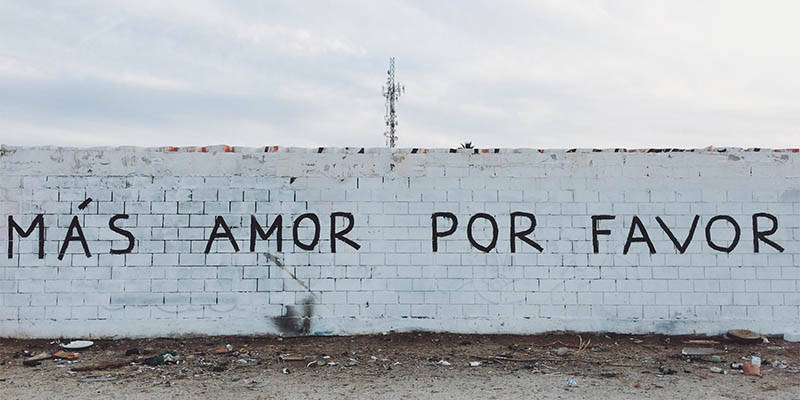Adjectives with Ser and Estar can completely change their meaning depending the context of the phrase and the verb used. To be or to be? That is the question when learning these 2 Spanish Verbs.
This is one of the trickiest parts of the Spanish language for beginners. Firstly, it’s tricky because the differences between one verb and the other are minimal, but really important. Secondly, in other to understand how it works you need to identify the contextual changes. Thirdly, and most importantly, you need to know the differences between verbs ser and estar.
The following list shows the most important adjectives with ser and estar. In this list, you will see that they change their meanings depending on whether they are used with ser or estar.
However, if you still don’t know when to use the Spanish Verbs Ser and Estar we have a post explaining when & how to use them properly. Click here to read our post or contact us if you still have doubts about it.
Adjectives with Ser and Estar
ABIERTO/A (Open)
María es muy abierta, habla con todo el mundo. = Maria is very open, she talks to everyone.
Alberto está abierto a muchas oportunidades laborales. = Alberto is open to many job opportunities.
La ventana está abierta y hace mucho calor. = The window is open and it is very hot.
ABURRIDO/A (BORING)
La película es aburrida, me gustó más la primera parte. = The film is boring, I liked the first part better.
El niño está aburrido en el parque porque no están sus amigos. = The child is bored in the park because his friends are not there.
AGARRADO/A (Tight-Fisted)
En España los catalanes tienen fama de ser agarrados, no les gusta gastar dinero. = In Spain the Catalans have a reputation for being tight-fisted, they don’t like to spend money.
Es muy importante estar agarrado a la cuerda cuando estás escalando una montaña. = It is very important to hold on to the rope when you are climbing a mountain.
ATENTO/A (Attentive)
Ana es muy atenta con los amigos de sus padres. = Ana is very attentive to her parents’ friends.
Ana está muy atenta en clase. = Ana is very focused in class.
BUENO/A (Good)
Mi abuelo es un hombre muy bueno. = My grandfather is a very good man.
Mi vecino está muy bueno, es un hombre muy guapo. = My neighbour is very hot, he’s a very handsome man.
CALLADO/A (Quiet)
Pedro es muy callado, no habla nunca en las reuniones de empresa. = Pedro is very quiet, he never speaks at company meetings, for instance.
Los niños están callados en clase, se portan muy bien. = The children are quiet in class, they behave very well.
CERRADO /A (Closed)
Ella es una chica muy cerrada, a veces demasiado introvertida. = She is a very closed girl, sometimes too introverted.
Ella está cerrada a cualquier oportunidad laboral en el extranjero. = She is closed to any job opportunities abroad.
¿Está cerrada la puerta de casa? = Is the door to the house locked?
CLARO/A (Clear)
El cielo es azul claro. = The sky is light blue.
¿Está todo claro? ¿Habéis comprendido? = Is everything clear, have you understood?
DESPIERTO/A (Awake)
Mi hermano es un chico muy despierto, entiende todo con la primera explicación. = My brother is a very alert boy, he understands everything with the first explanation.
Todas las mañanas mi hermano está despierto a las 7 de la mañana. = Every morning my brother is awake at 7am.
INTERESADO/A (Interested)
Lucas es un chico muy interesado, solo nos llama cuando nos necesita. = Lucas is a very interested boy, he only calls us when he needs us.
Lucas está interesado en biología. = Lucas is interested in biology.
LISTO/A (Smart)
Mi hijo es muy listo, saca muy buenas notas en el Missippi College. = My son is very smart, he gets very good marks at Missippi College.
Mi hijo está listo para la carrera. = My son is ready for the race.
¿Estás lista? Si no te das prisa, llegamos tarde. = Are you ready? If you don’t hurry, we’ll be late.

MADURO/A (Mature)
Felipe es un chico muy maduro para su edad. = Felipe is a very mature boy for his age.
La manzana está madura, se puede comer y está muy rica. = The apple is ripe, edible and very tasty.
MALO/A (Bad)
La nueva banda de música del colegio es muy mala. = The new school band is very bad.
El perro es malo, no está bien educado. = The dog is mean, not well behaved.
Miguel está malo, hoy no ha venido a clase. = Miguel is sick, he didn’t come to school today.
NEGRO/A (Black)
Mi camiseta favorita es negra. = My favourite T-shirt is black.
Estoy negra porque veo la gente no recicla. = I am angry because I see that people don’t recycle.
Llevo en la playa un mes y estoy negra, así estaré morena todo el verano. = I’ve been on the beach for a month and I’m tanned, so I’ll be brown all summer.
ORGULLOSO/A (Proud)
Manuel es muy orgulloso, cree que lo sabe todo. = Manuel is very prideful, he thinks he knows everything.
Estoy muy orgullosa de mis padres, ellos son maravillosos. = I am very proud of my parents, they are wonderful.
RICO/A (Rich)
Amancio Ortega es el hombre más rico de España. = Amancio Ortega is the richest man in Spain.
La paella valenciana está muy rica. = Valencian paella is very tasty.
VERDE (Green)
Aquel señor del parque es un viejo verde, no para de decir cosas feas a las chicas. = That man in the park is a dirty old man, he keeps saying nasty things to girls.
Los plátanos están verdes, todavía no se pueden comer. = The bananas are green, they cannot be eaten yet.
El niño está un poco verde en matemáticas. No está preparado para el examen de mañana. = The child is a bit too new in maths. He is not ready for tomorrow’s exam.
Overall, after this extensive list of examples we hope that you have a more clear idea of the use of Adjectives with Ser and Estar. Therefore, if you want to keep learning tips & advices for studying spanish follow our blog! In addition, remember that if you want to improve your listening skills you can access your podcast recordings. In conclusion, feel free to visit our Spanish courses to improve your Spanish level.

